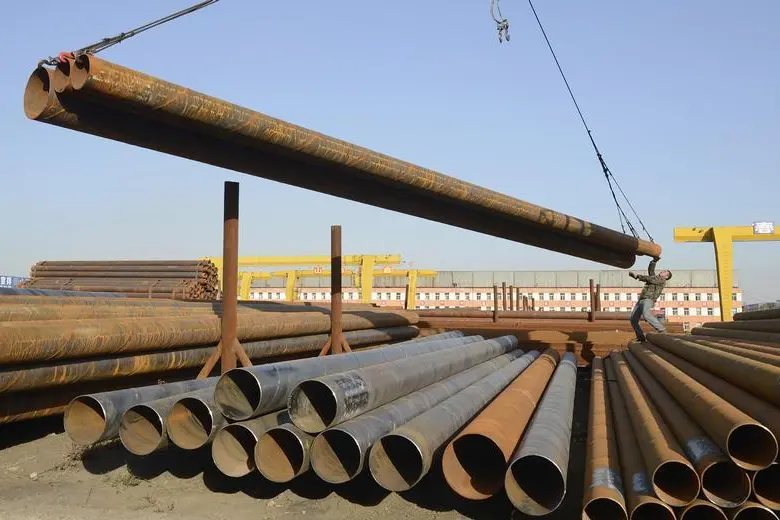PHOTO
MISRATA, Libya- The Libyan Iron and Steel Company (Lisco), one of North Africa's biggest steelmakers, plans to launch a tender next month worth $1 billion to build two new plants and also aims to increase production this year, its chairman said.
Mohamed al-Faqih also told Reuters Lisco had started exporting products to a new market, Algeria, in a rare sign of non-oil activity in the OPEC oil producer.
The steelmaker has been hit by power cuts, shortages and the reluctance of European firms to engage with the country amid chaos since the toppling of Muammar Gaddafi in 2011.
But thanks to its location in the western Libyan city of Misrata largely untouched by violence, Lisco managed to keep producing and even open a new bar mill last year with an annual capacity of 800,000 tonnes.
To feed the new mill, Lisco plans to attract foreign companies to build two plants to produce billets, with a tender worth $1 billion to be likely launched next month, Faqih said.
The move would help cut costly imports.
"We are preparing the tender documents," Faqih said, adding that Lisco was targeting large European companies such as Italy's Danieli or Germany's SMS Group.
Lisco plans to increase production liquid steel, its main base product, this year to more than 600,000 tonnes, up slightly from last year, he said.
Power and gas supply was better than last year but there were still disruptions, he said, explaining why Lisco was running below its 1.3 million tonne capacity.
The company also plans to produce in 2019 at least 1 million tonnes of finished and semi-finished products, up from last year's level, he said, without providing exact comparisons.
Output of reinforcing bars (rebar) will rise to 500,000 tonnes in 2019 after 350,000 tonnes last year. The original plan had been 650,000 tonnes but by June Lisco had only achieved 250,000 tonnes.
Lisco also made by June 100,000 tonnes of hot briquetted iron, putting it on target to reach 300,000 tonnes in 2019.
"We are facing many obstacles and most plants are not working at the maximum possible level," he said.
A war started in April by eastern forces to take Tripoli held by the U.N.-backed government had halved output at a small Tripoli plant and made foreign banks more reluctant to open credit letters, although security in Misrata remained good.
Lisco started this year exporting rebars to Algeria, having sent 30,000 tonnes in five shipments and planning to export 10,000 tonnes a month. It had long sought access to the neighbour to complement European and Arab markets.
"Now we are concentrating on Algeria. They have a lot of construction activities," he said. Lisco also imports raw materials from Brasil's Vale and a Bahraini company.
(Editing by Louise Heavens) ((Ulf.Laessing@thomsonreuters.com; Reuters Messaging: follow me on twitter @ulflaessing))





















